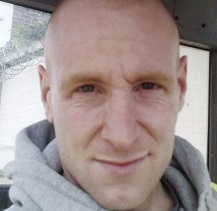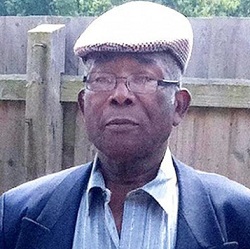“An Englishman’s home is his castle.” That’s the phrase that everyone thinks about when the subject of what to do with burglars who break into an occupied house comes up. What most people think is that we should be able to defend ourselves, our loved ones and our home, as a feudal Lord did his castle: at the end of sharp pointy stick!
Sadly there’s this small matter of taking the law into our own hands, and vigilantes, and reasonable force, and human rights, and all that nampy pamby stuff that turns the criminals into the victims, and puts the innocent householder in cuffs. We can’t do a thing can we? It’s political correctness gone mad.
That’s right isn’t it? Well no, not really.
You see despite what you may think, or rather despite what the media like to lead you to believe, the law actually is on the side of the victim of crime, the householder in this instance. This is why the perennial call for tougher self defence laws because of some horror story like the Tony Martin case (the Norfolk farmer who shot and killed a burglar and was convicted of manslaughter) falls on deaf ears. David Cameron’s comments recently about making it clear that decent honest people are allowed to defend themselves, will ultimately come to nothing, simple because we already can!
As proof I present here 3 cases where burglars have been stabbed to death in Manchester in the last 3 months. 2 were house invasions and one was a shop:
Peter Flanagan stabs and kills John Bennell in his Salford home
 June 2011: Peter Flanagan who along with his son Neil and girlfriend, were asleep in bed at home and at midnight heard noises downstairs. Going downstairs to investigate they were confronted by 4 masked men in the house, one armed with a machete. In the struggle that ensued one of the burglars was stabbed in the chest. His 3 accomplices dragged him outside but left him in the road as they flee (nice!). The burglar died (John Bennell) but when the police came, Salford/Manchester man Peter Flanagan along with Neil and girlfriend were all arrested! If you missed them, you can imagine the headlines and uproar over this case.
June 2011: Peter Flanagan who along with his son Neil and girlfriend, were asleep in bed at home and at midnight heard noises downstairs. Going downstairs to investigate they were confronted by 4 masked men in the house, one armed with a machete. In the struggle that ensued one of the burglars was stabbed in the chest. His 3 accomplices dragged him outside but left him in the road as they flee (nice!). The burglar died (John Bennell) but when the police came, Salford/Manchester man Peter Flanagan along with Neil and girlfriend were all arrested! If you missed them, you can imagine the headlines and uproar over this case.
Verdict The Crown Prosecution Service (CPS) dropped all charges against Peter, Neil and the girlfriend, despite the fact that Peter admitted stabbing and killing 27 year old John Bennell.
Cecil Coley stabs and kills Gary Mulling in his Old Trafford florists shop
 July 2011: 72 year old Cecil Coley was playing dominos with his friend in his florists shop in Manchester when 4 men burst in, armed with guns and a knife. Cecil’s friend is knocked unconscious and Cecil is pistol whipped, breaking his jaw. At some point one of the guns is fired (it turned out to be a blank firing starter pistol) and Cecil grabbed a knife off the counter and plunges it into Gary Mulling’s heart. The assailants flee, but not before another one receives knife wounds, again leaving their wounded fellow to die on the pavement (spotting a pattern here?).
July 2011: 72 year old Cecil Coley was playing dominos with his friend in his florists shop in Manchester when 4 men burst in, armed with guns and a knife. Cecil’s friend is knocked unconscious and Cecil is pistol whipped, breaking his jaw. At some point one of the guns is fired (it turned out to be a blank firing starter pistol) and Cecil grabbed a knife off the counter and plunges it into Gary Mulling’s heart. The assailants flee, but not before another one receives knife wounds, again leaving their wounded fellow to die on the pavement (spotting a pattern here?).
Verdict After recovering from the broken jaw and leaving hospital, the Crown Prosecution Service (CPS) dropped all charges against Cecil Coley.
Vincent Cooke stabs and kills Raymond Jacob in his Bramhall home
 September 2011: Vincent Cooke was relaxing in his Bramhall home when 2 men smashed their way in the door, held a knife to his throat and told him he’s going to die. Apparently after a hidden safe they’d been told Vincent had, Raymond and his accomplice Michael Thorpe ransacked the house looking for it. It appears that Vincent didn’t offer much of any resistance (who would?) until that is, something the burglars didn’t expect happened: Vincent’s wife and 12 year old son returned and stumbled into the scene!
September 2011: Vincent Cooke was relaxing in his Bramhall home when 2 men smashed their way in the door, held a knife to his throat and told him he’s going to die. Apparently after a hidden safe they’d been told Vincent had, Raymond and his accomplice Michael Thorpe ransacked the house looking for it. It appears that Vincent didn’t offer much of any resistance (who would?) until that is, something the burglars didn’t expect happened: Vincent’s wife and 12 year old son returned and stumbled into the scene!
Now the situation suddenly turned, no longer was Vincent’s property at stake, suddenly his family were at risk too and he acted as anyone would (I’ll come back to this in a future article). Screaming for his family to “Get Out”, he struggled against Raymont, managed to grab a kitchen knife and stabbed him, apparently 6 times in the arms and legs. Raymond it seems succumbed to bleeding from a deep would to his leg whilst attempting to flee our of the front door.
anyone, who acts in good faith in using whatever force they honestly feel is necessary… will not be prosecuted
Verdict Vincent was released on police bail while they investigated the incident and a few weeks later heard from the CPS that all charges would be dropped. North West chief prosecutor Nazir Afzal said: “It is clear to me that Mr Cooke did what he honestly and instinctively believed was necessary to protect himself, his home and his family from intruders. The law is clear that anyone, who acts in good faith in using whatever force they honestly feel is necessary to protect themselves, their families or their property, will not be prosecuted.”
So 3 burglars are stabbed and killed, and so far there’s not been a single charge pressed against any of their killers (an emotive term but one that I use here simply as a statement of fact). That’s not quite in keeping with the common opinion I stated at the start of this article now is it? The reason is simple but the media doesn’t like it: the law currently does allow us to use reasonable force to protect ourselves. The Criminal Justice and Immigration Act 2008 says that for you to successfully claim you acted in self defence, you must have:
- Acted instinctively.
- Feared for your safety or the safety of those around you.
- Or be enacting a lawful arrest.
- Used a level of force that was not excessive, in the circumstances as you believed them to be at the time.
It’s the 4th point that’s the commonly quoted “reasonable force” clause, but even that is qualified in the victims failure as you can even use force that is deemed UNreasonable in hind-sight, if you believed it to be reasonable at the time, even if it turns out you were mistaken. Of course proving that is a little tricky, but that’s the principle which is applied. An example of where you may cross the line in the use of reasonable force is this case:
Munir Hussain beat Walid Salem causing brain damage
 September 2008: Munir Hussain was an Asian businessman who had his house invaded by 3 men and was threatened along with his family. When a struggle broke out and the alarm raised, he chased Walid Salem, one of the intruders, out of the house and with the aid of his brother Tokeer Hussain, caught Walid. Joined by 2 others, the 4 of them beat Walid badly with a cricket bat and hockey stick, causing a fractured skull and brain damage.
September 2008: Munir Hussain was an Asian businessman who had his house invaded by 3 men and was threatened along with his family. When a struggle broke out and the alarm raised, he chased Walid Salem, one of the intruders, out of the house and with the aid of his brother Tokeer Hussain, caught Walid. Joined by 2 others, the 4 of them beat Walid badly with a cricket bat and hockey stick, causing a fractured skull and brain damage.
Verdict Munir was charged with grievous bodily harm with intent, found guilty and sentenced to 30 months in jail (39 months for his brother Tokeer). On appeal Munir’s sentence was reduced to one year, suspended for two years, so he was released (but is still a convicted criminal now).
Decided to dish out some of their own revenge “justice”
So why was this different? The key thing to note here is that Munir was only charged for the attack once Walid had been caught after his escape from the house. Nothing that Munir did whilst Walid was in Munir’s home was considered in the case, that was all deemed reasonable force. It only became excessive force once Walid had been apprehended by Munir and Tokeer and they subsequently decided to dish out some of their own revenge “justice”. The law sees the 2 incidents as quite separate.
The reason people get so upset when these stories break is because the first thing the police do when arriving at a house and finding someone dead, is to arrest everyone and sort it all out down the station. Can you imagine the alternative headline: “Police fail to arrest killer, who said: ‘It wasn’t me gov!'” Of course they have to arrest the victims, because it starts to bring some control to what is likely a highly emotionally charged scene, and it’s always better to arrest someone and let them go later, than to let a murderer go and have to go looking for him later. Some may argue that the justice process isn’t perfect, but roughly it goes something like:
The justice process goes something like this
- Some altercation happens and the police are called.
- The police arrive, arrest everyone remotely involved on “suspicion of…” and collect evidence.
- Everyone is interviewed at the police station.
- Good guys tend to be released on police bail, pending further enquiries (interviews of witnesses and forensic evidence).
- Sometime later a file is passed to the Criminal Prosecution Service (CPS) who decide who to charge with what, and importantly in the cases above, who to drop all charges against.
- Those charged end up in court.
Whilst you can never rely on broad sweeping generalisations, the law in a nutshell could be summed up thus: If you are in genuine fear for your life or safety (or that of those around you), you can use as much force as is necessary to eliminate the threat, including killing your attacker in self defence. BUT at the moment your attacker is no longer a credible threat, you must restrain yourself, something that I can quite agree could be very hard to do.


{ 0 comments… add one now }